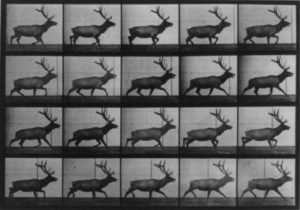 It was a fall night. A friend was helping to present an acoustic music concert at the Unitarian church in Doney Park. She was stationed in the lobby, selling tickets. I didn’t know anyone else there, so I sat by myself until a man edged into the seat beside mine. A woman was behind him. They held hands.
It was a fall night. A friend was helping to present an acoustic music concert at the Unitarian church in Doney Park. She was stationed in the lobby, selling tickets. I didn’t know anyone else there, so I sat by myself until a man edged into the seat beside mine. A woman was behind him. They held hands.
As soon as he settled into his chair, he turned toward me. “Hi. I am Joseph, and I have brain damage.” Exclamation points decorated his sentences. His eyes darted, and his voice lurched as he told me a zigzagged story about the accident that had affected his brain and changed the way he moved through the world. “Some things are different about me and some things are the same,” he said. “I like music. Do you like music?”
The woman with him was his wife; she introduced herself as Candace and receded. I told Joseph my name and felt as if I, too, wanted to hold his hand.
When I was growing up there was Cousin John. Cousin John lived with our Aunt Alice. He was in his late 30s, but he wore shorts every time I saw him, didn’t go to a job and when we visited, he came outside and ran around the yard with us kids. Even though he was big and I was age 8 or 9, I could tell that I was smarter than him sometimes. My mom said that Cousin John was slow. Aunt Alice said he was special.
Sometimes when we played Kick the Can with Cousin John, he cried when he was tagged out. Sometimes when he made it safely to base, he jumped up and down, clapping his hands. I didn’t know any other grown-up who did those things. Cousin John was like a kid in a grown-up’s body.
The thing about people who are kids in grown-up bodies is that I never really know how old they are inside their heads. Which playbook do I use? The one for kids or the one for grown-ups? Vexed by the questions, a warm soup of confusion, alertness and tenderness swirls inside me. I don’t want to patronize or step on anyone’s dignity. But I also don’t think being a grown-up bestows me with a hall pass to the high ground. I see myself as a grown-up in a grown-up’s body, inculcated with impulse control, social niceties and emotional masking. But none of that gets me any closer to the tug and rush of my feelings.
At the close of the concert on that fall night, the emcee bounded onto the stage, thanked us for attending and warned us to drive cautiously as we made our way back to Flag. He told us that the highway was not lit, the night was moonless and there are elk, he said. Lots of elk.
My speedometer edged into the low 60s as I made my way toward town. I blazed past a car stopped on the shoulder of the road. The night was inky, and I could barely make out the figure standing in front of the car. Was that Joseph’s wife? Was everything OK? I made a U-turn.
The front end of the car was crumpled and smeared with blood. The windshield was cratered and shattered. Joseph crouched on the ground outside of the passenger side door. Confetti-sized glass shards surrounded him, glittering in the light cast by the passing cars. He wailed. Candace stood beside him motionless and silent. Broken glass was sprinkled on her hair and clothes. “Elk. We hit an elk,” she said in the flat, grey voice of shock. “He is still alive. He is over there.”
I brushed the glass off of their hair and clothing, and called the Highway Patrol. Candace unthawed and sat beside Joseph; his crying subsided. The three of us listened to the labored breathing of the dying elk, who had hobbled about 30 yards away before collapsing. The breath rattled in its lungs, the low bass notes of the inhale and exhale thickened the air. Joseph’s face was wet with tears.
After a short while, a Highway Patrol officer pulled up behind us. He carried a rifle. We pointed toward the elk and we heard the single shot. Joseph began crying again. I wanted to, but Keeping It Together felt like the grown-up thing to do.
Candace thanked me and assured that they would both be fine, so I climbed into my car and pulled onto the highway. As I drove away, I was hypnotized by the blue lights atop the patrol car. I watched them in my rear-view mirror slicing through the black, black night until I could see them no more.

